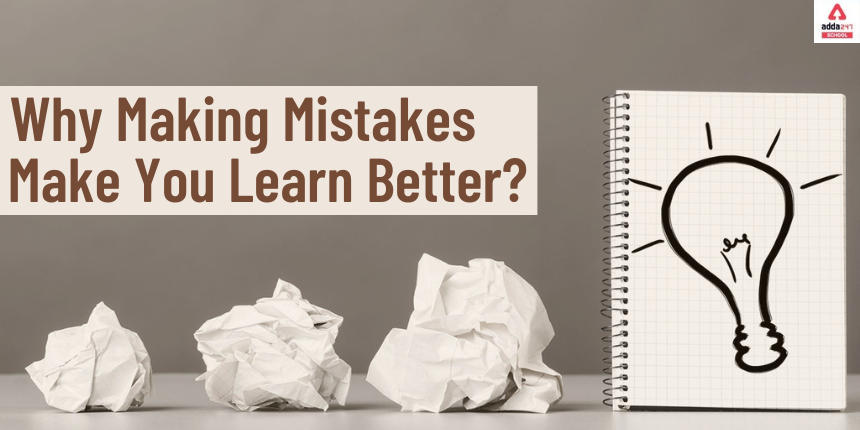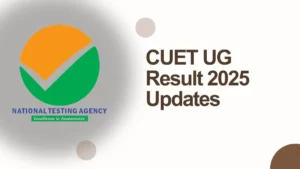Making Mistakes Make You Learn Better
You’ve made mistakes before, but when? Research reveals that making errors is helpful, despite how crazy it may appear. Please note that we do not mean to breach the law when we mention errors. When we use the term “mistakes,” we refer to actions and decisions that we do on a daily basis but which may not always be the ideal ones.
We frequently make mistakes when interacting with others, conversing with others, communicating with others, studying, managing circumstances, and a variety of other things.
Making errors is excellent because, as a species, we attempt to learn from them and try to avoid doing the same thing again. This makes room for a rewarding educational experience.
Why Do We Commit Mistakes?
Humans are prone to mistakes. It is ultimately what makes us human. The adage from ages past is the best evidence for this assertion.
By Alexander Pope: “To mistake is human, to forgive divine.” In terms of human errors, this aphorism is arguably one of the most overused.
Any successful businessperson, scientist, politician, or athlete you speak to will tell you the same thing about mistakes: that they are unavoidable and that learning from them is essential to succeeding later in life.
Instead of learning from the errors of others, we get much more knowledge through our own blunders. No matter how much we study other cultures and their experiences, we never truly comprehend them. This is due to the fact that human beings are hard-wired to learn from their mistakes rather than from other people or things.
These choices have a tendency to stick in our thoughts because we are both emotionally and practically preoccupied with our actions. When faced with a similar circumstance, memories of previous incidents assist us to make the best decision.
Why Should We Strive To Learn From Our Mistakes?
- You have a chance to progress when you learn from your errors. It enables you to admit your error, which isn’t always simple. It also enables you to learn how to identify the process stages that contributed to the error and how to fix those actions.
- It’s crucial to learn from your errors since doing so can increase your employer’s confidence in you. They’ll be more inclined to trust you with crucial jobs if they see that you’re prepared to work hard to better yourself. They may cease giving you assignments completely if you don’t learn from your errors since they won’t have faith in your ability to do them.
- You may overcome your fear of failure by learning from your errors. Never learning from your failures would make you always fear failing and repeating the same mistake. But if you can figure out what went wrong, you can start to see what you need to change.
Making A Mistake Is A Learning Tool!
Making errors is a necessary component of a good learning journey. In front of the entire class, students frequently provide incorrect responses to queries. Although this behavior might make students feel extremely embarrassed, it shows that they are making an attempt to study the subject. The method of correction used after making a mistake is an effective tool for fully understanding the subject. Making mistakes is therefore a necessary component of learning.
Recognize And Embrace Your Mistakes
Children frequently worry about making mistakes, yet making mistakes is an essential aspect of language development! Everyone makes errors, including native English speakers and more experienced students.
Don’t worry about making mistakes, we advise in our official Speaking guideline. The most crucial aspect is communicating! The youngster is much more likely to build their confidence and abilities if they speak frequently and make a few mistakes than if they talk seldom out of fear of making mistakes.
Ways To Help Students Learn From Mistakes
1. Consider Mistakes As A Source Of Knowledge
While working on a topic, students who are aware of wrong answer concepts are able to approach it at a much deeper level than those who are just given the proper solution and are required to memorize it. Additionally, we must ensure that pupils grasp the error’s context in addition to just correcting errors. Students can only achieve better knowledge and the right approach to solving the error in this manner.
2. Encourage habitual independent mistake correction
Giving students the chance to identify and fix their errors on their own as soon as they are made has a beneficial effect on their desire to learn. At the same time, conceptual knowledge is developed through learning how to investigate the sources and underlying causes of errors.
3. Allow For Mistakes In A Learning Environment
Students must be given the opportunity to make errors if they are to be taught by them. Students should be made aware that in a learning environment, mistakes will be handled differently than they would in a performance review when each error carries a penalty. Additionally, work to develop a learning environment where kids don’t feel embarrassed by their errors.
Related Post:
- Holistic Education And Its Meaning
- Role Of Newspaper In Daily Life To Enhance Knowledge
- How To Complete Paper On Time?
- How To Excel In An Interview?
- How To Reduce Screen Time For Kids?
- How To Score Good Marks In 10th And 12th Board Exam?
Why Making Mistakes Make You Learn Better?- FAQs
Ques 1. How can you benefit from your mistakes?
Ans. The majority, if not all, of your errors, may serve as fantastic teaching moments. In actuality, success is frequently achieved through learning from failure.
Ques 2. Can we learn from other people’s mistakes?
Ans. We may learn from our own errors as well as those committed by others; the key thing is that we do learn from them.









 Try CUET College Predictor 2025 to Predi...
Try CUET College Predictor 2025 to Predi...
 CUET Result 2025 OUT (Today) @cuet.nta.n...
CUET Result 2025 OUT (Today) @cuet.nta.n...
 Why the Delay in CUET UG 2025 Results? C...
Why the Delay in CUET UG 2025 Results? C...









